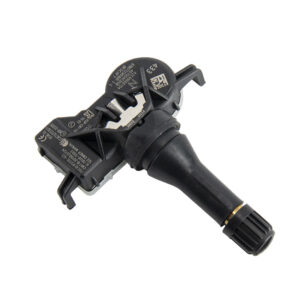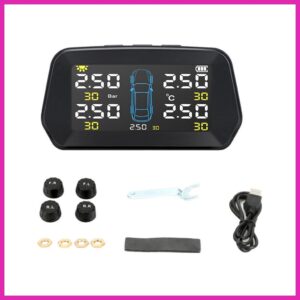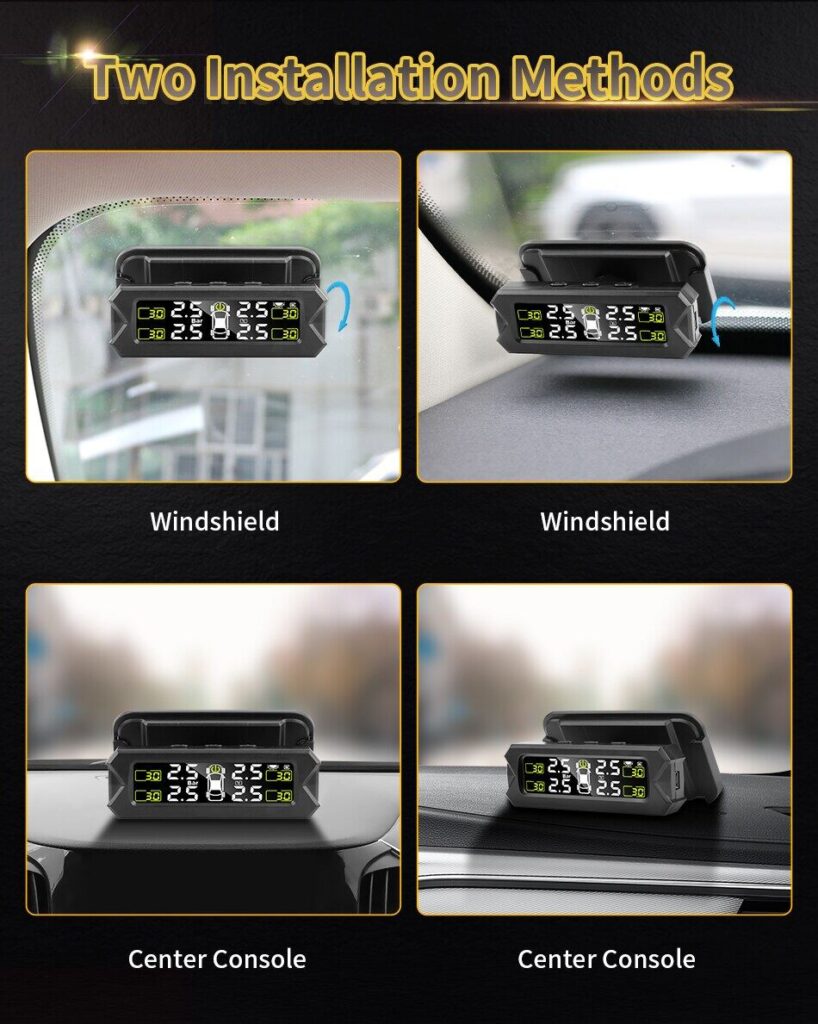Blog
TPMS for RVs and Trucks: Specialized Solutions for Larger Vehicles
TPMS for RVs and Trucks: Specialized Solutions for Larger Vehicles
Tire Pressure Monitoring Systems (TPMS) have become standard in most modern vehicles, but for larger vehicles like RVs (Recreational Vehicles) and trucks, the importance of these systems is even greater. Due to their size, weight, and the different demands placed on their tires, RVs and trucks face unique challenges when it comes to tire maintenance. A properly functioning TPMS is an essential tool for ensuring that tires are inflated to the correct pressure, helping to prevent accidents, reduce maintenance costs, and improve overall vehicle performance.
In this article, we will explore the importance of TPMS for RVs and trucks, the specialized solutions available for these larger vehicles, and how you can benefit from these systems to maintain your tires’ health and safety.
Why TPMS is Crucial for RVs and Trucks
Tire pressure monitoring is vital for all vehicles, but it becomes even more critical for RVs and trucks due to several factors:
1. Size and Weight
RVs and trucks often carry heavy loads, and maintaining proper tire pressure is essential to ensure the vehicle’s stability and handling. Overloaded tires or tires with insufficient pressure can lead to blowouts, loss of control, or uneven tire wear. Since these vehicles are much larger than standard cars, the consequences of underinflated tires can be far more severe.
2. Longer Trips and Distance
Both RVs and trucks often travel long distances, and for RVs, trips may last for days or even weeks. This extended driving puts additional stress on the tires, making them more susceptible to damage if not properly maintained. Trucks, particularly those used for hauling, are constantly on the road and dealing with heavy loads, making a functioning TPMS crucial for detecting tire issues early on.
3. Diverse Environments and Conditions
RVs and trucks are used in a variety of conditions, from highways to off-road terrain, and even extreme temperatures. These varying environments can affect tire pressure in different ways. A TPMS can alert you to issues such as underinflation caused by temperature changes or tire pressure loss from minor punctures, ensuring that you’re always aware of the state of your tires.
Specialized TPMS Solutions for Larger Vehicles
While standard TPMS systems work well for passenger vehicles, trucks and RVs often require more robust and specialized solutions. These vehicles typically have more tires, heavier loads, and different usage patterns, which can affect how a TPMS functions. Here are some specialized solutions designed for larger vehicles:
1. Multi-Sensor Systems for Multiple Tires
One of the main challenges of TPMS in RVs and trucks is monitoring a large number of tires. While standard vehicles typically have four tires, RVs and trucks can have anywhere from six to ten tires or more, especially if the vehicle is carrying a trailer. Specialized TPMS for larger vehicles use multi-sensor systems that can monitor all tires, including those on trailers, ensuring that tire pressures are consistent across the entire vehicle.
These systems come with multiple sensors that are installed on each tire’s valve stem or inside the tire. The sensors send tire pressure data to a central receiver or display system inside the vehicle, allowing the driver to monitor all tires simultaneously.
2. Wireless TPMS
For convenience and ease of use, many RV and truck owners opt for wireless TPMS systems. These systems communicate wirelessly with a display device installed inside the vehicle, allowing for real-time monitoring of tire pressure and temperature. Wireless TPMS is particularly beneficial for larger vehicles because it eliminates the need for complex wiring or hard-to-reach sensors, making installation easier and reducing the risk of system failures.
Wireless systems can often be customized to include additional features such as alerts for low tire pressure, temperature warnings, and even diagnostic features to help with tire maintenance. These features make wireless TPMS ideal for truck drivers and RV owners who spend long hours on the road or are far from service centers.
3. Temperature Monitoring
In addition to monitoring tire pressure, many TPMS systems for trucks and RVs also include temperature sensors. Tires generate heat as they rotate, and excessive heat can cause premature wear or even blowouts. Monitoring tire temperature is especially crucial for larger vehicles carrying heavy loads. A drop in tire pressure can result in increased friction and higher temperatures, further exacerbating the problem.
Many specialized TPMS solutions for RVs and trucks come with temperature monitoring features, alerting drivers when tires are overheating. This added feature helps prevent tire damage and extend the lifespan of the tires.
4. External TPMS for Trailers
RVs and trucks often tow trailers, which add additional tire pressure management challenges. Trailer tires are just as important to monitor as the vehicle’s own tires, and many TPMS systems now offer external sensors for trailers. These sensors work just like the ones installed on the vehicle tires and communicate wirelessly with the TPMS display, providing comprehensive monitoring of both the towing vehicle and the trailer.
By including trailer tire monitoring in your TPMS system, you can ensure that all tires are properly inflated, reducing the risk of accidents caused by trailer tire failures and improving overall safety.
5. Real-Time Alerts and Notifications
An essential feature of any TPMS system is the ability to alert the driver when tire pressure is too low or when a tire is overheating. For larger vehicles, having these alerts in real-time can prevent critical issues before they escalate. Specialized TPMS systems for RVs and trucks often come with advanced alert systems, including audible alarms, visual indicators on the display, and even smartphone notifications.
This real-time communication is especially useful for truck drivers and RV owners who may be far from repair shops or in areas with limited resources. Being alerted to tire pressure issues early on allows drivers to take corrective action before a potentially dangerous situation develops.

Benefits of TPMS for RVs and Trucks
The benefits of TPMS for larger vehicles like trucks and RVs are clear:
1. Improved Safety
The most important benefit of TPMS is the safety of both the driver and passengers. Underinflated tires are one of the leading causes of tire blowouts, which can cause serious accidents. By maintaining optimal tire pressure, TPMS systems help reduce the risk of tire-related accidents and improve the stability and control of large vehicles.
2. Reduced Tire Wear
Properly inflated tires wear more evenly, which extends their lifespan. By maintaining tire pressure at the recommended levels, TPMS helps prevent premature tire wear, saving you money on tire replacements and increasing the longevity of your tires.
3. Increased Fuel Efficiency
Proper tire pressure is essential for optimal fuel efficiency. Underinflated tires increase rolling resistance, which means your engine has to work harder, leading to higher fuel consumption. TPMS helps maintain the correct tire pressure, reducing rolling resistance and improving fuel economy.
4. Cost Savings
By reducing tire wear, preventing blowouts, and improving fuel efficiency, TPMS systems ultimately save money in the long run. Regular monitoring helps avoid the need for costly tire repairs and replacements, and the ability to catch tire problems early can prevent more expensive repairs down the road.
5. Peace of Mind
For RV and truck owners, peace of mind is invaluable, especially when traveling long distances or hauling heavy loads. Knowing that your tire pressures are monitored in real-time allows you to focus on the road without worrying about potential tire issues.

Conclusion
TPMS systems for RVs and trucks are specialized solutions designed to meet the unique demands of larger vehicles. With the ability to monitor multiple tires, track temperature, and send real-time alerts, these systems play a vital role in maintaining vehicle safety, tire health, and performance. Whether you’re an RV enthusiast embarking on a long road trip or a truck driver hauling goods across the country, a well-functioning TPMS is a must-have tool for keeping your tires in top condition and ensuring your safety on the road.
Investing in the right TPMS system for your RV or truck will not only save you money in the long run but also give you peace of mind knowing that your vehicle is running smoothly and safely.


